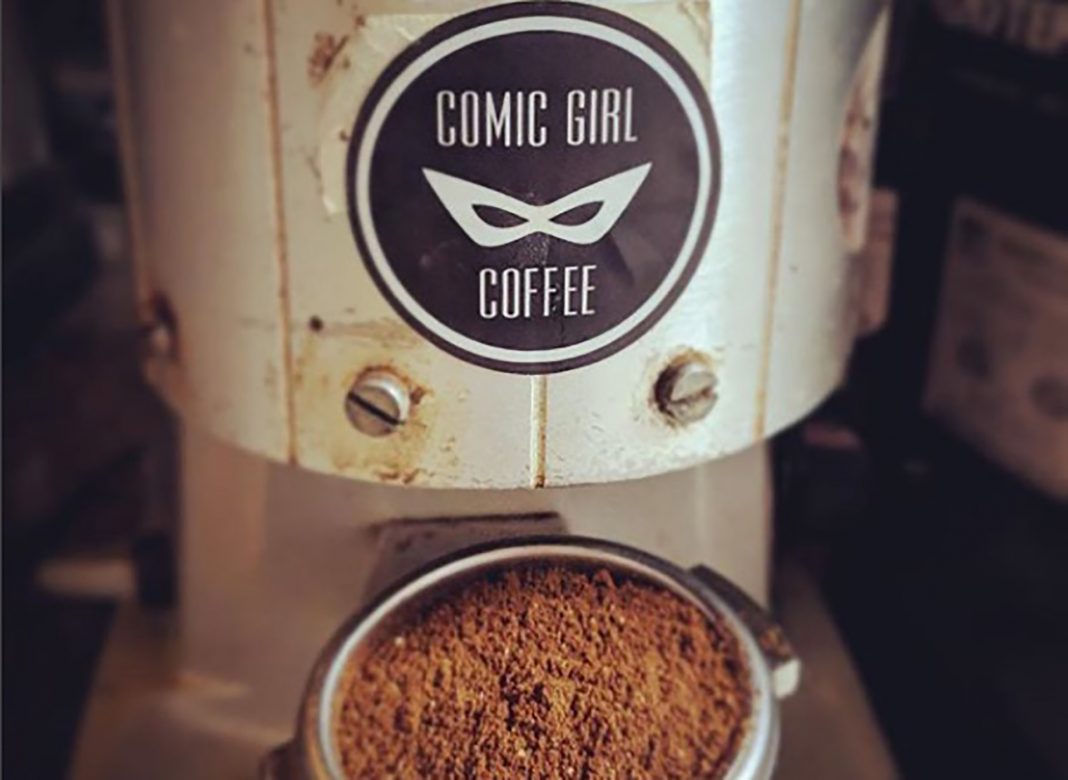
If you’ve ever longed for a space that combines coffee, comics, and activism, you’re in luck: these are the super powers of Charlotte, North Carolina’s Comic Girl Coffee. Founded and run collectively by Lara Americo, Ashley Jarrett, Kayla Dance, and Allie Chudoba, the space is dedicated to being by and for coffee lovers of all stripes—especially those who feel marginalized in traditional cafe spaces. In terms of equity, Comic Girl shoots for the stars; not only is it collectively owned, it’s also queer/POC-centered, vegan, and accessible to people of all incomes.
Like so many organizations that exist to center marginalized people in coffee, the impetus for Comic Girl came from the lack of safe spaces for queer and trans people, especially those of color, in the Charlotte area. When the founders noticed that space missing from their lives, they decided to create it themselves. The inspiration came from a bookstore called Firestorm Collective in Asheville, North Carolina. “Firestorm Collective was a dream,” says Americo. “Having a queer safe space in the middle of the Appalachian Mountains was like an oasis in a desert. I knew that there had to be a space like this where I lived. Or else, what’s the point of living there?”
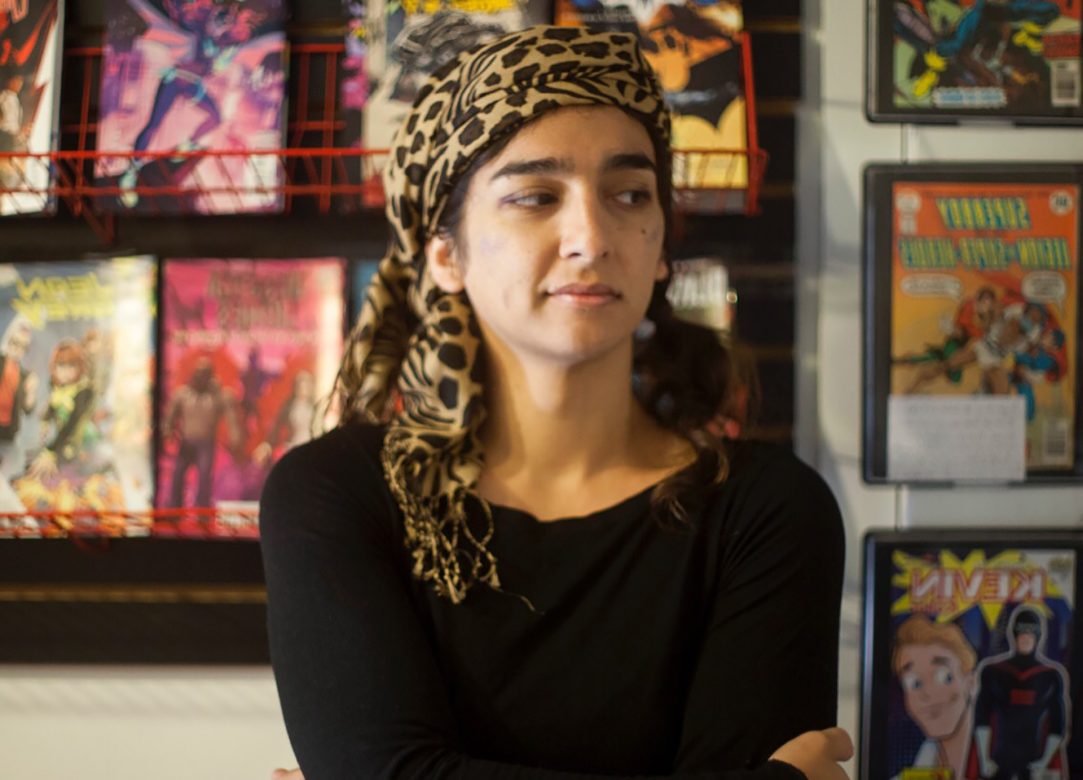
Lara Americo. Photo courtesy of Comic Girl Coffee.
I ask Americo about the unique challenges of running Comic Girl as a cooperative. “Every decision has to be made collectively and all profits are shared,” she says. “Right now, that means we only have the capacity to open on the weekend. We are hoping for more members or for one of us to be able to work full-time so that the store can be open regularly.” The biggest challenge the Comic Girl crew has experienced is finding new co-op members. “We don’t use bank loans and we have no one to bankroll the shop. We are all marginalized people in some way trying to create a space for ourselves. Instead of pouring money into the shop, we have to use free labor until the shop is sustainable. Not everyone is willing or able to work for free in the hopes of future payoff unless they really believe in the concept.”
Another challenge is that it’s not always easy for workers to be their own boss. “Most people are trained from birth to work for someone. It is hard to break out of that mentality.” But she says the benefits are meaningful: “Everyone has an equal say, no one is taken advantage of, no one is told what to do, and no one profits off of other people’s labor.”
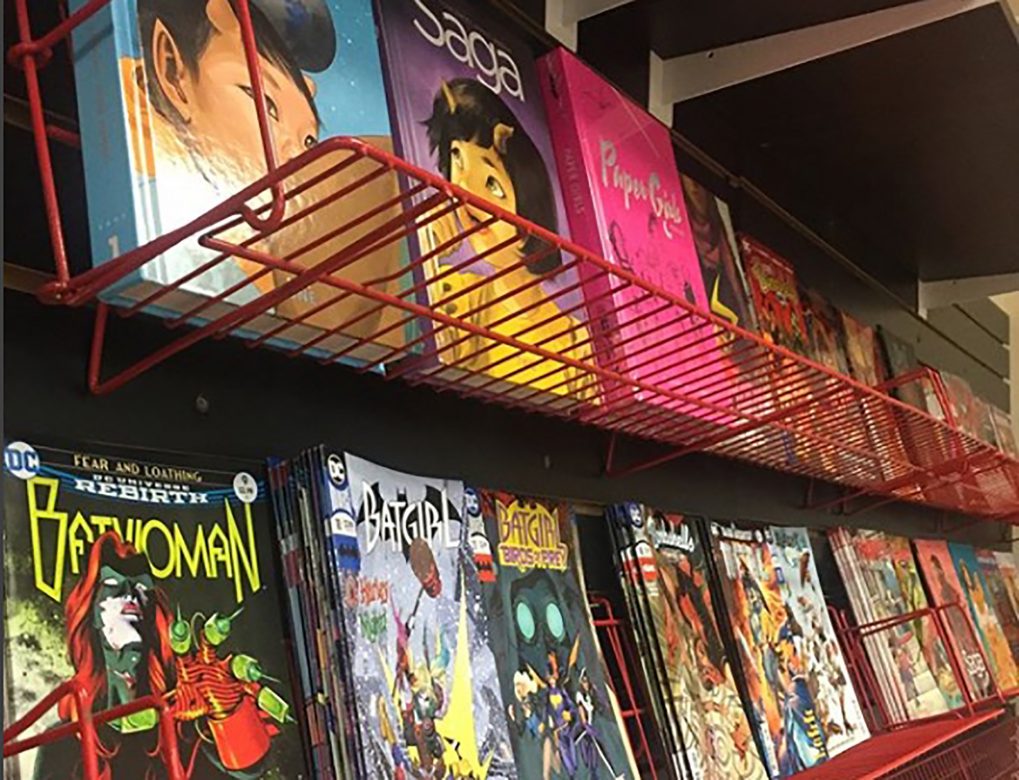
When it comes to being vegan, the owners feel strongly about how food production and food access play into equity. “Not many people realize that environmental challenges that mass meat production causes. In North Carolina, drinking water is being contaminated by hog waste. It’s a huge problem,” says Americo. She wants Comic Girl to be a center for food access that doesn’t transfer the harm elsewhere down the line. To make sure the food and beverages are accessible, Comic Girl has a Pay It Forward board, where patrons can purchase magnets that provide drinks and food for other guests who can’t afford to pay.
The books section, which centers writing by and about femmes, people of color, and/or queer people, follows through on this praxis. It’s run primarily on donated books and guests can pay what they want, so that higher-income patrons can support those who have less. They also use the space as a place to build community through events such as queer speed dating and D&D nights. Their goals for the future center on making the space more accessible more often. “We want to be open 24 hours a day in a bigger space,” Americo says. “That way more people to come in crying because they love the space so much.”
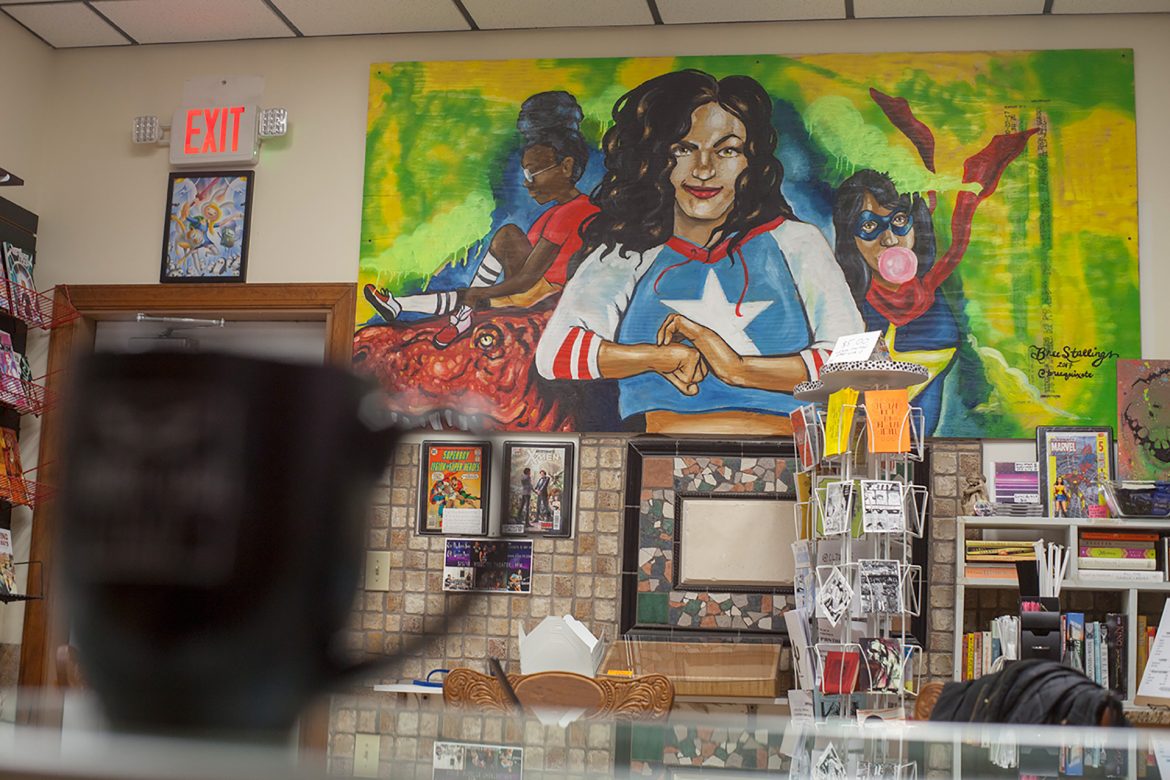
Charlotte itself plays a major role in Comic Girl’s mission and existence, providing not only the impetus but the support for the space to exist and succeed. “The local coffee community is a dream,” Americo tells me. “It has been so supportive from the start. Even though we are in competition, the community wants everyone to succeed—the way it should be. There is enough to go around, and somehow, Charlotte’s small coffee community is living that.”
The collective trauma experienced by marginalized communities in Charlotte has also played a part in the development of Comic Girl as a community space over time. This includes the HB2, the anti-transgender bathroom bill, which started in Charlotte, as well as the police shooting of Keith Lamont Scott. “The city is still traumatized in many ways,” says Americo. “Since the shop opened last September, we have seen that healing process happening.”
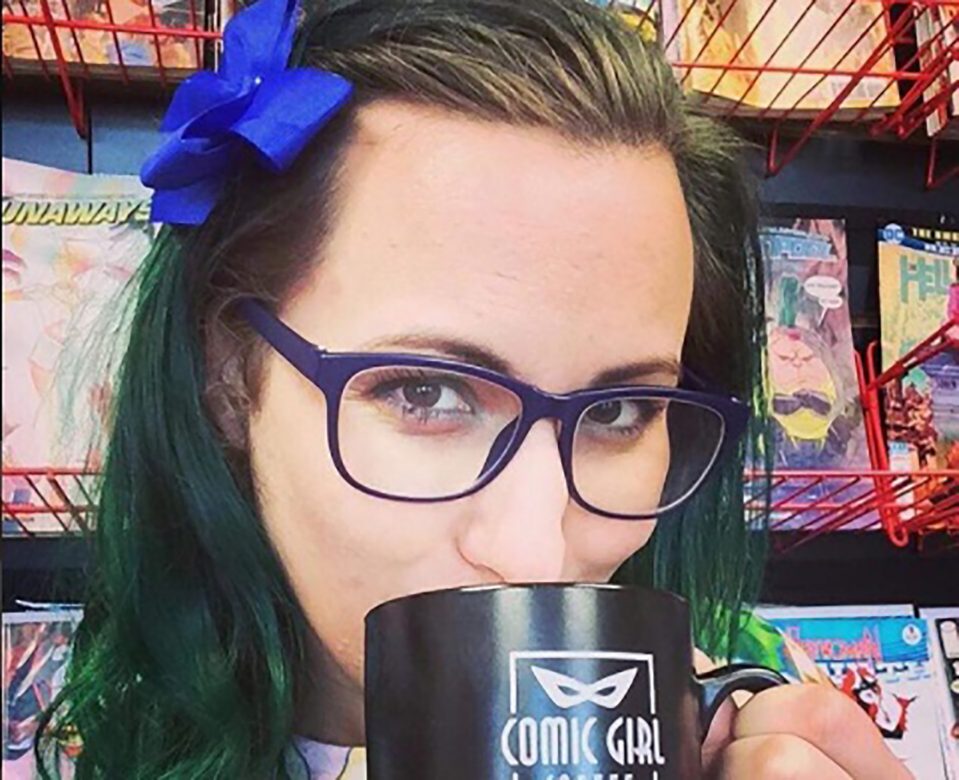
Allie Chudoba. Photo courtesy of Comic Girl Coffee.
Comic Girl occupies a unique space, at an equally unique time in Charlotte’s history. But there are universal lessons here as well. The space achieves its inclusivity goals by not hewing towards welcoming any single group. You can be yourself here—no matter who you are—and if you can’t afford a drink that day, the shop’s community has you covered. Sounds like superpowers to me.
Comic Girl Coffee is located at 1224 Commercial Ave, Charlotte. Visit their official website and follow them on Facebook, Twitter, and Instagram.
RJ Joseph (@RJ_Sproseph) is a Sprudge staff writer, publisher of Queer Cup, and coffee professional based in the Bay Area. Read more RJ Joseph on Sprudge Media Network.
All photos courtesy of Comic Girl Coffee.
The post Boom! Pow! Charlotte’s Comic Girl Coffee Fights For Inclusivity appeared first on Sprudge.

